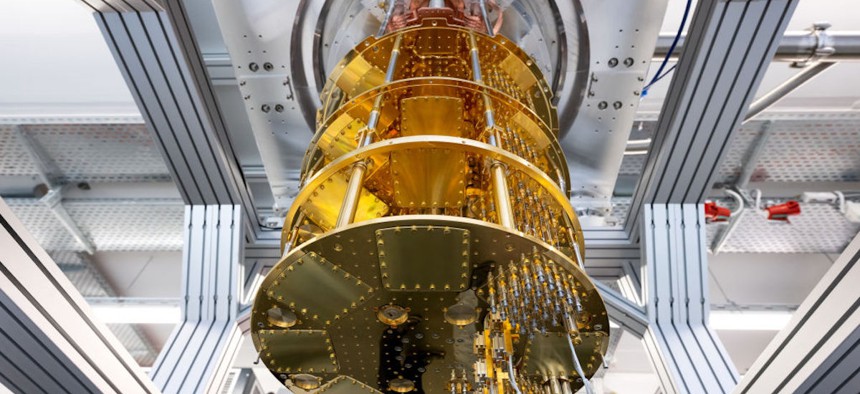State takes quantum tech from theory to business

picture alliance / Contributor via Getty Images
To speed the commercialization of quantum technologies, Massachusetts is investing in research facilities and workforce training.
Massachusetts is building a foundation for a quantum technology economy.
A $3.5 million grant from the Massachusetts Housing and Economic Development will help Northeastern University establish the Experiential Quantum Advancement Laboratories (EQUAL) at its Innovation Campus in Burlington.
The grant, part of the Collaborative Research & Development Matching Grant Program and administered by the Innovation Institute at the Massachusetts Technology Collaborative (MassTech), will support the nearly $10 million project.
The funding will strengthen EQUAL's partnerships with the state, nine academic institutions and 23 industry partners as they work to streamline the research-to-commercialization pipeline for quantum technologies.
At EQUAL’s Building V laboratory, students and researchers will be able to apply new quantum technologies at the commercial level right away.
“There’s a lot of researchers doing hard-core research where they’re sort of siloed away and there’s no clear pathway for translating quantum technology from lab to the market,” Northeastern associate professor and EQUAL Co-Director Swastik Kar said in the university’s announcement.
Instead, the EQUAL lab will allow students, researchers and industry partners to progress “from concept all the way to mature technologies all in one go,” he said.
The EQUAL partners will not only advance quantum technologies that have wide-ranging applications, but also train students and build a workforce that will in turn boost the Massachusetts economy.
In April, the commonwealth announced funding for a smaller quantum collaborative between the research centers at the University of Massachusetts at Boston, Western New England University and three Massachusetts-based small businesses. The effort aims to boost the development and commercialization of quantum computing hardware and support workforce development for the quantum information industry.
The funding would support two low-temperature facilities – one at each university – for hardware validation and support. The schools would use the facilities to train workers, introducing engineering students to cryogenic technology and quantum information sciences and providing training to scientists already in the workforce.
NEXT STORY: Building back better with robotics






